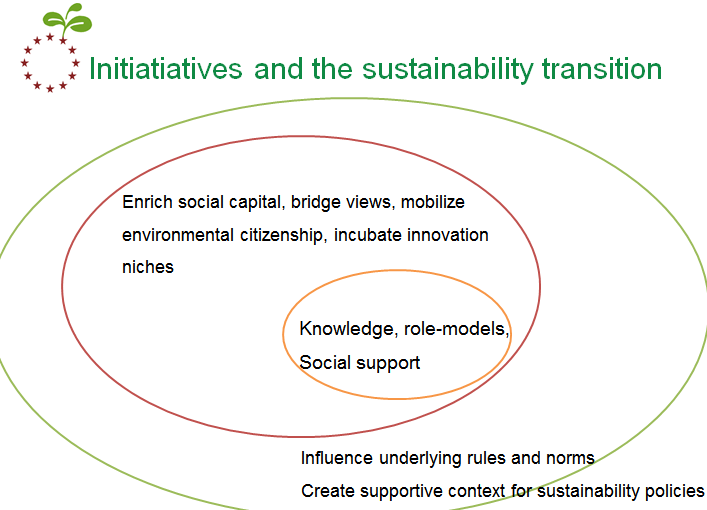Assessing the Impacts of Grassroots Initiatives – Sharing Lab with Diana Ivanova
Published by SHARECITY on the 9th August 2018.

Assessing the impacts of grassroots initiatives
SHARECITY is currently working with food sharing initiatives to co-design a toolkit to help food sharing initiatives identify, reflect and report on their sustainability worth. We have documented our first steps on this journey with a Briefing Note which examines the goals and impacts of initiatives which participated in our in-depth ethnographies and we are working with initiatives from across the food sharing spectrum in London, Dublin and Singapore. While there are few people engaged explicitly with assessing the intangible qualities that are experienced socially through sharing, such as social connection or conviviality through commensality, we have been reaching out to a number of sustainability impact assessment experts to collaboratively think through how best to examine and document what difference food sharing makes to people and the planet.
As part of this process Diana Ivanova from the Norwegian University of Science and Technology in Trondheim, a participant in the EU project GLAMURS: Supporting Green Lifestyles, visited the SHARECITY team in June to give us a Sharing Lab on her experiences with assessing the impact of grassroots initiatives on household consumption patterns. Like SHARECITY, the GLAMURS project adopts a systems approach and Diana’s work included researching the impact that bottom-up networks with an overarching agenda of social and environmental well-being (grassroots initiatives for brevity) can have with respect to reducing carbon emissions and increasing well-being. This work followed on from examination of the carbon footprinting of households across the European Union and details of that household-level research are documented through papers and the GLAMURS website. Through a one-time survey including lifestyle satisfaction questions, the goal of this initiative-facing research was to explore whether people who are engaged with grassroots sustainability organisations report lower household consumption patterns than those who do not.
Overall the results were positive with 15% lower carbon emissions and 11-13% higher life satisfaction levels amongst those who are engaged with grassroots initiatives. There are always challenges in such tasks as this, such as identifying suitable indicators, dealing with uncertainties around cause-effect relationships and recognising that self-reporting of behaviour tends to underestimate individual consumption, but Diana and her colleagues’ research provides a useful starting point for examining the work of grassroots initiatives in reorienting household consumption patterns. While the overall levels of consumption found in the project remain unsustainable even amongst those who participate in grassroots initiatives, the research does indicate that those who participate in such initiatives have lower consumption patterns. Certainly, the research provides a solid foundation on which to base further conversations with such initiatives (and those that interact with or govern them) to explore how and why such relationships develop and how to scale-up and out the positive dimensions in the future.
Anna Davies
© 2015 - 2024 ShareCity | Web Design Agency Webbiz.ie








